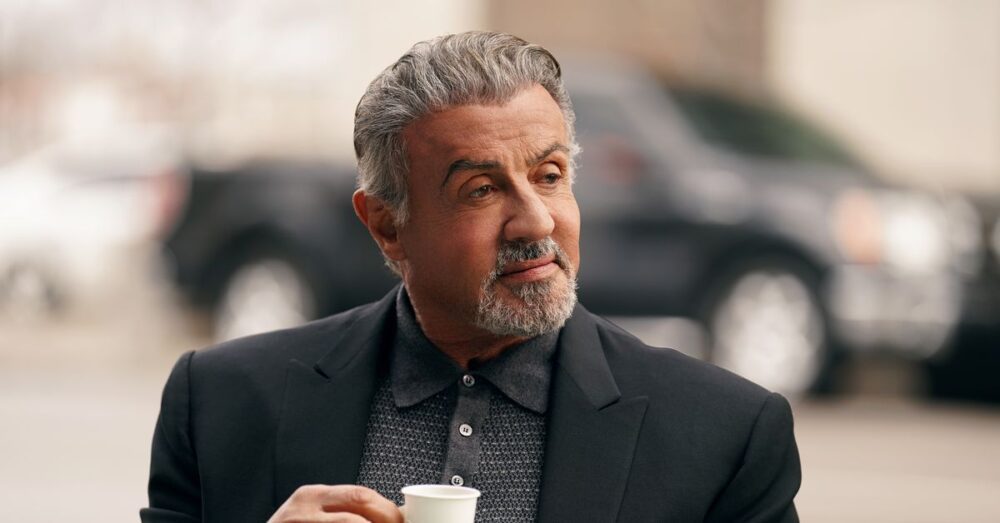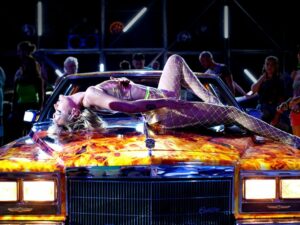There are two reasons that Paramount Plus is hoping you’ll check out Tulsa King. The first is hard to miss: Sylvester Stallone, one of the few septuagenarian brick houses walking the Earth, stars in it, his first role in a TV series. The second is creator Taylor Sheridan, the man behind the powerhouse TV series Yellowstone and its growing number of spinoffs (of which Tulsa King is not one… yet.) Together, these two names suggest a vibe, and that vibe is manly men man-show.
To be clear: this would be an accurate read. Tulsa King is more of a relaxed exercise in masculinity than Sheridan’s other creations, but it’s the only real thing driving it. Think less of a running tap of testosterone, and more of an espresso drip, sipped casually. The real reason to watch Tulsa King, however, is quite simple — it’s funny as hell, and it’s not clear if any of it is on purpose.
Tulsa King’s premise is a fish-out-of-water comedy played straight, following Dwight Manfredi (Stallone), a former New York City mafia capo as he ends a 25-year prison sentence only to find that no one wants him around anymore. He’s banished to Tulsa, Oklahoma, and in a bit of positive spin is told to set up shop there. What’s funny is, Dwight absolutely commits to this.
The instant he arrives he starts acting like he’s the star of his own mobster movie, flashing cash around, paying a cab driver, Tyson (Jay Will) to work for him exclusively, and, most hilariously, going to a legal weed dispensary to run a protection scam in order to protect them from “the law.” This part of the show is played for comedy, and it helps that wry comedy expert Martin Starr (Silicon Valley) appears in it as Bohdi, the hapless dispensary owner.
The rest of Tulsa King, though? It is impossible to tell if one is laughing at it, or with it. Part of this is due to its creator’s priors. Yellowstone, Tulsa King’s Sheridan-created sister show, is a series built in part on clowning on those who hail from big cities and find their flashy success is all for naught in the heart of Real America. It laughs at anyone who would choose chinos over blue jeans, and would shred Kendall Roy’s Sperry Topsiders over a bowl of bran flakes for flavor. Dwight Manfredi, in other words, doesn’t seem built for Sheridan’s world, and the dissonance of Tulsa King’s pilot is in how Manfredi is written and performed in such a way that he absolutely does not seem to get this.
There are moments where Tulsa King’s first episode seems like it’s going to be a show about reaching across the aisle, so to speak, particularly when he goes to a cowboy bar and compliments a man’s alligator boots, raising up his own Italian leather loafers for appraisal as well. In other moments, it seems like Tulsa King is going to be about a man who cleans a town up in his (gentlemanly) image, like when he goes to a strip club and ensures a bachelorette party of ladies has a good time by paying the proprietor off and beating up a local creep. And in others, it’s just about what happens when a mafioso shows up in a place where no one expects him too, like when Dwight goes to beat down a used car dealer for being racist to his driver, Tyson (and the show’s only Black character).
Tulsa King, in other words, contains multitudes. It’s a game of Scenes from a Hat masquerading as a TV show, where someone takes a suggestion for what Sylvester Stallone should do next in small-town Oklahoma, and then he goes and does that. It is compelling nonsense and muscular sophistry, a series where one of our greatest meatheads (who is capable of much more than his greatest critics often claim) uses two expressions and one pinky ring in a variety of situations and produces art every time. There’s not much like it, and there’s something thrilling in knowing that it could stop being as entertaining as it is at basically any moment. Until then? Long live the Tulsa King.












